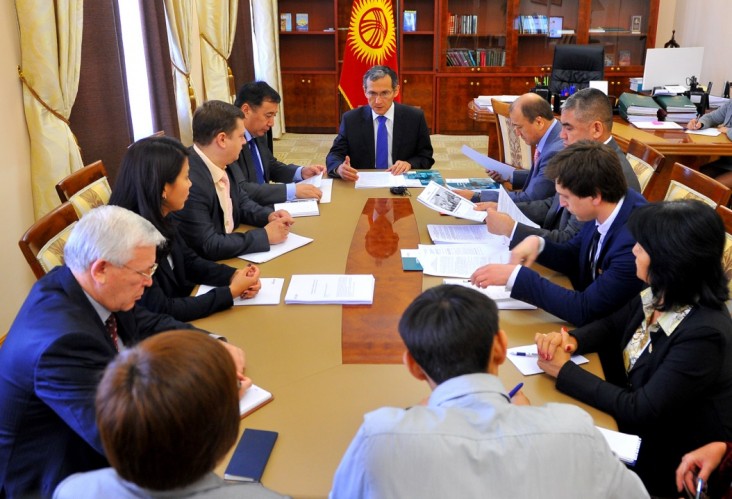
Oct. 2014—For over a decade, the Government of the Kyrgyz Republic has attempted—largely unsuccessfully—to enhance security and earn citizen trust through meaningful police reform. Like other post-Soviet states, the Kyrgyz Republic inherited a large police structure that has, since independence, been used to suppress dissent—frequently through the intimidation of opposition politicians, media and civil society. Now, however, the status quo appears to be changing.
In 2013, the Government of the Kyrgyz Republic approved a resolution on measures to reform the country's law enforcement bodies, which included a number of recommendations from the Civic Union for Reforms and Results, a leading civil society coalition focused on police reform. The recommendations included establishing an oversight council on the reforms and development of law enforcement bodies; strengthening cooperation between the police and civil society; and competitive staff recruitment. The Civic Union’s recommendations also laid the basis for a draft law on interaction of the police and civil society, and new regulations on an integrated internal and external evaluation of the police by civil society, local governments and public councils.
With support from USAID through the Collaborative Governance Program, the Civic Union has developed a unique methodology for independent monitoring of police reform efforts, training representatives of 27 civil society organizations throughout the country. The methodology includes comprehensive public awareness surveys of law enforcement officers, civil society organizations, local governments and defenders of human rights to get their opinions and recommendations on police reform issues.
Findings and recommendations are presented as quarterly police reform reviews to the Ministry of the Interior, the donor community, media and the oversight council chaired by the vice prime minister.
Extending his appreciation to the Civic Union for their recommendations, Vice Prime Minister Abdyrakhman Mamataliev said, “Cooperation with civil society is very important as it gives us the opportunity to take another look at the results achieved.”
Given the historical insularity and intractability of law enforcement bodies, the fact that the Civic Union is included as a valued, respected participant in these discussions is a significant victory for professional, policy-oriented civil society organizations.
In September 2014, Prime Minister Djoomart Otorbaev invited the Civic Union to discuss measures to increase citizens’ trust in police. As a result, Otorbaev requested that the minister of the interior provide monthly information on police reform progress to citizens as well as to his office.
“Civil society’s opinion on the ongoing police reforms is the most important for us as, without the support of active citizens, we cannot achieve the desired results,” said Otorbaev. “I have marked increase of public confidence in the authorities as the main criteria for evaluating the work of the government.”
After the meeting with the prime minister, a key leader of the Civic Union, Urmat Kazakbaev, said his organization “was able to achieve a tremendous success in establishing a dialogue with the authorities. We were heard because we have become a bridge between the people and the government on police reform.”
USAID’s Collaborative Governance Program, implemented by the East-West Management Institute, works to increase civil society’s role as a relevant partner with the Government of the Kyrgyz Republic and the private sector to advocate for citizen concerns, provide informed public policy input, and efficiently and inclusively deliver key services.
LINKS
Follow @USAIDCtrAsia, on Facebook, on Flickr, on YouTube







Comment
Make a general inquiry or suggest an improvement.